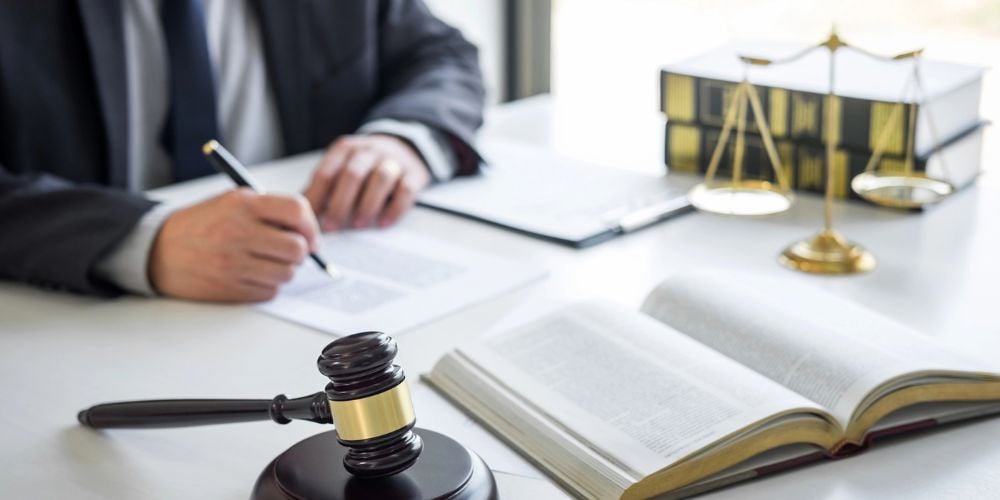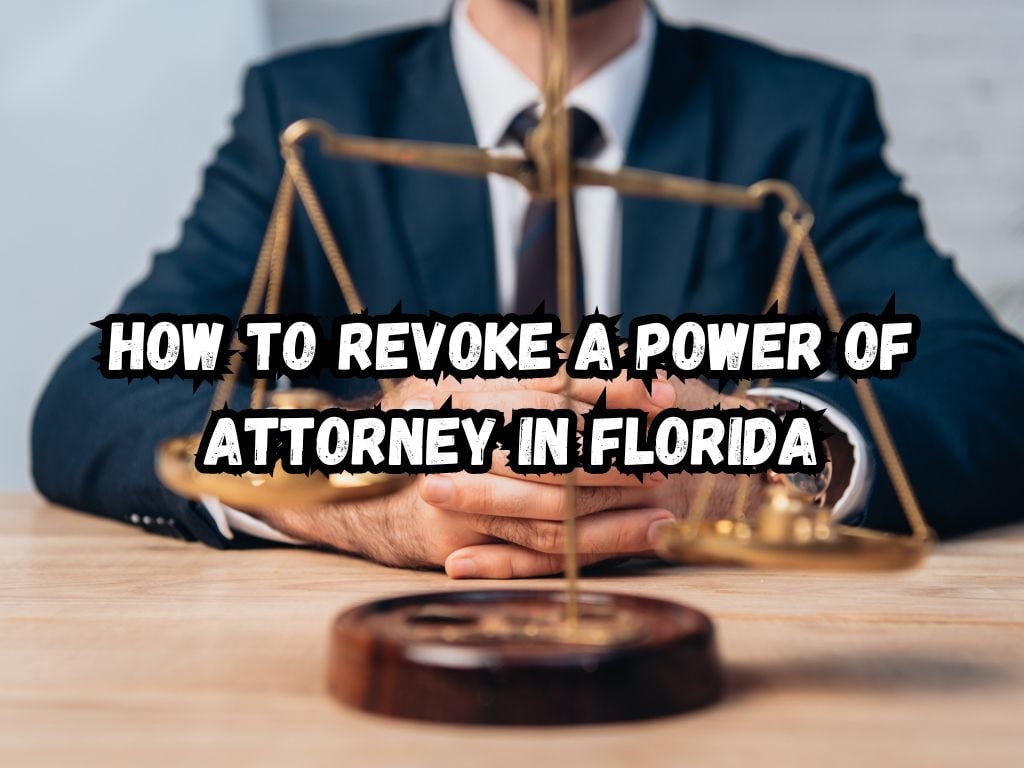Navigating through the proper legal channels to revoke a Power of Attorney (POA) in Florida is a critical process, one that must be handled with care and precision.
This guide will walk you through how to revoke a power of attorney in florida.
Legal Requirements for Revoking Power of Attorney in Florida
Florida statutes lay out specific provisions for the creation and revocation of a POA. When you decide to revoke a POA, it’s not enough to simply tell your agent that you’re withdrawing their powers; you must follow a legal process.
First and foremost, the revocation must be in writing. Florida law doesn’t allow for the revocation of a POA through verbal instruction.
This written revocation notice must then be delivered to the agent (also known as the attorney-in-fact) and to any third parties who might be affected by the change, such as financial institutions or healthcare providers that have been dealing with the agent under the authority of the existing POA.

How to Revoke a Power of Attorney in Florida?
To revoke a Power of Attorney correctly and ensure all legal standards are met, adhere to the following steps:
- Prepare a written document titled ‘Revocation of Power of Attorney.’ State clearly that you’re revoking all the powers previously granted to your agent.
- Sign and date the revocation document. If possible, get it notarized to add an extra layer of legal weight to the document.
- Provide a copy of the revocation to your former agent. This is a critical step. If the person continues to act under the power of the document you’re revoking, they might be unaware of its invalidity or, worse, deliberately acting without authority.
- Notify third parties that the original POA is no longer valid by sending them a copy of the revocation notice.
While third-party financial institutions or others don’t need a formal revocation, it’s prudent to keep them informed. This can help prevent any unauthorized action on your assets and can reduce risk.
The process doesn’t necessarily involve legal fees; however, consulting a lawyer can ensure that every box is ticked correctly, which is crucial for the revocation to take effect.
Different Types of Power of Attorney
The type of Power of Attorney you have will play a role in the revocation process. For instance, a simple or General POA can be revoked as described above, whereas a Durable Power of Attorney remains in effect even if you become incapacitated.
To revoke it, you may have to demonstrate mental competence, meaning that you understand the implications of what you are doing and why you are doing it.
In the case of a Medical Power of Attorney, the document might contain specific instructions for revocation, which often must be done verbally, in writing, or by any other act demonstrating the principal’s intent to revoke.
For any type of POA, it’s important to be thorough in the revocation process. If, for example, you have allowed your agent to make decisions regarding your healthcare and financial affairs, you must ensure that all parties in both domains are aware of the revocation.
Dealing with Complexities
Sometimes, complications can arise. Your agent might not agree with your choice to revoke their powers or third parties may unintentionally continue to recognize the former agent’s authority.
If the proper steps are not taken to notify relevant parties, or if there is any confusion over the legality of the revocation, legal disputes can occur.
In such cases, settling the dispute may require legal mediation or even court intervention, making it crucial to take the correct steps when revoking a POA to prevent these issues.
As you go through this process, keep detailed records of all communications and distributions of the revocation notice. This can offer protection if the revocation is later questioned.

Frequently Asked Questions
Do you need a lawyer to revoke a Power of Attorney in Florida?
While you can revoke a POA on your own, consulting a lawyer can help prevent any legal missteps and ensure that the revocation process is properly executed.
What is the standard method for revoking a Power of Attorney in Florida?
The standard method involves creating a written Revocation of Power of Attorney notice, delivering it to your former agent and any affected third parties, and ideally having the notice notarized.
Can a Power of Attorney for minor child be revoked in Florida?
Yes, the same principles for revoking a standard POA apply when the document pertains to the affairs of a minor child.
What happens if I fail to revoke a Power of Attorney correctly?
If not done properly, the agent may continue to hold legal authority to act on your behalf, which could lead to unauthorized and potentially harmful decisions regarding your affairs.
Who should be notified when a Power of Attorney is revoked?
You should notify the agent who holds the POA, any institutions or individuals that interact with that agent under the POA, and anyone else who may be affected by the change.
Remember that a mistake in revoking a POA could result in unwanted consequences, so always approach this process with care and thoroughness.
Conclusion
Understanding how to properly revoke a Power of Attorney in Florida is vital for ensuring that your affairs remain under your control or the control of someone you trust. The process is dignified and essential to maintain control of who can act on your behalf.
In closing, if there are doubts about the process or you’re facing complicating factors, seek professional legal advice. An attorney can provide guidance tailored to your situation, ensuring the revocation is lawful and effective.


 Tags:
Tags:










